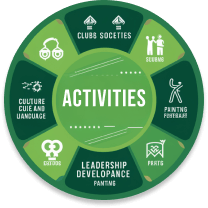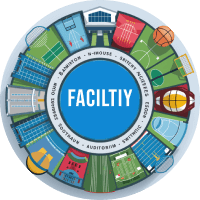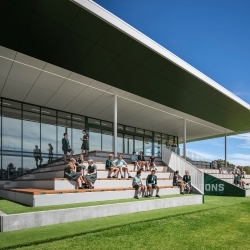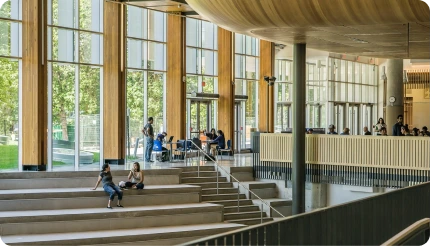Enter OTP



Boone, United States of America

Boone, United States of America

 Badminton
Badminton Baseball
Baseball Basketball
Basketball Football
Football Hockey
Hockey Netball
Netball Rock climbing
Rock climbing Roller skating
Roller skating Rounders
Rounders Rugby
Rugby Running
Running Soccer
Soccer Strength and Conditioning Games
Strength and Conditioning Games Swimming
Swimming Table Tennis
Table Tennis Tennis
Tennis Volleyball
Volleyball Boxing
Boxing
 Clubs/ Societies/Organizations
Clubs/ Societies/Organizations Coding
Coding Cooking
Cooking Culture & Language
Culture & Language Dance
Dance Debate
Debate Drama
Drama Foreign Languages
Foreign Languages Leadership Developing Activities
Leadership Developing Activities Media
Media Military
Military.jpg?v=1) Model United Nations Club (MUN)
Model United Nations Club (MUN) Music
Music Painting
Painting Performance Art
Performance Art Photography
Photography Religious Activities
Religious Activities Robotics
Robotics Role Playing
Role Playing Social Activism
Social Activism Speech & Political Interest
Speech & Political Interest Sports & Recreation
Sports & Recreation Student Council
Student Council Studying Abroad
Studying Abroad
 Auditorium
Auditorium Badminton Court
Badminton Court Basket ball Court
Basket ball Court Football Court
Football Court Fully equipped Gym
Fully equipped Gym Kids Play Area
Kids Play Area Sports Pavillion
Sports Pavillion Swimming pool
Swimming pool Synthetic Running Track
Synthetic Running Track Theatre
Theatre Volley Ball Court
Volley Ball Court
Appalachian State University boasts a well-planned infrastructure that supports its diverse academic programs, research initiatives, and student life. Here are the key aspects of the university's infrastructure:
1. Campus Layout and Facilities
Main Campus: Located in Boone, North Carolina, the main campus covers approximately 1,200 acres in the scenic Blue Ridge Mountains. The layout integrates green spaces, walking paths, and recreational areas to create an inviting environment.
Academic Buildings: The university features over 100 academic buildings, including specialized facilities for various disciplines such as business, health sciences, education, and engineering. Notable buildings include:
Schaffner Hall: Home to the Walker College of Business, offering advanced learning spaces and resources for business students.
Leon Levine Hall of Health Sciences: Opened in 2018, this state-of-the-art facility includes simulation labs, classrooms, and research spaces for nursing, social work, and public health programs.
Donnie E. Earle Music Building: Equipped with practice rooms, performance spaces, and technology resources for music students.
2. Sustainability Initiatives
Green Building Standards: Many campus buildings are designed or renovated to meet LEED (Leadership in Energy and Environmental Design) standards, promoting energy efficiency and sustainability.
Renewable Energy: The university has invested in renewable energy sources, including solar panels installed on various buildings and the construction of a solar farm, contributing to its commitment to reducing carbon emissions.
Recycling and Waste Management: Appalachian State has implemented comprehensive recycling programs and waste reduction initiatives to promote sustainability on campus.
3. Research Facilities
Research Laboratories: The university houses numerous research labs across various disciplines, supporting faculty and student research in fields like environmental science, health, technology, and education.
The Appalachian Energy Center: Focused on energy efficiency and renewable energy research, this center conducts research projects and provides resources for the community and industry.
The Center for Economic Research and Policy Analysis: Offers resources and research support for economic studies and policy analysis, enhancing the university's role in regional economic development.
4. Student Housing and Amenities
Residential Facilities: Appalachian State offers various housing options, including traditional residence halls, suite-style apartments, and themed living communities. These accommodations foster a sense of community among students.
Dining Services: The campus features multiple dining facilities offering diverse meal options, including local and sustainable food choices. The university emphasizes healthy eating and nutrition through its dining programs.
Recreational Facilities: The university has extensive recreational facilities, including the Student Recreation Center, outdoor fields, and fitness studios, promoting physical well-being and an active lifestyle among students.
5. Transportation and Accessibility
Campus Transit System: Appalachian State provides a campus shuttle system to facilitate transportation between various campus locations and surrounding areas. The service enhances accessibility for students and staff.
Pedestrian-Friendly Environment: The campus is designed to be walkable, with well-maintained paths and sidewalks, ensuring safe and convenient movement throughout the university grounds.
6. Technology and Digital Resources
Library Services: The Belk Library and Information Commons provides access to extensive academic resources, study spaces, and technology support for students and faculty.
IT Infrastructure: Appalachian State is equipped with a robust IT infrastructure, offering high-speed internet access across campus, computer labs, and technical support services to enhance learning and research.
7. Community Engagement Spaces
Civic Engagement and Leadership Spaces: The university encourages community involvement and leadership development through dedicated spaces for student organizations, community service initiatives, and leadership programs.





Appalachian State University offers comprehensive student support services, including academic advising, counseling, and career services to help students succeed both academically and personally. The university provides resources like tutoring, writing centers, and mental health services to ensure students have the assistance they need. Additionally, Appalachian State fosters a supportive community through various student organizations and programs that promote engagement and leadership development.
Student life at Appalachian State University is vibrant and diverse, with over 400 student organizations catering to a wide range of interests, including academic, cultural, and recreational activities. The university's location in the scenic Blue Ridge Mountains offers students abundant opportunities for outdoor adventures, from hiking and skiing to rock climbing. Additionally, a robust calendar of events, including festivals, concerts, and community service projects, fosters a strong sense of community and engagement among students.



Appalachian State University offers a variety of on-campus housing facilities designed to provide a comfortable, inclusive, and supportive living environment for students. The university has 20 residence halls, including options such as Belk Hall, Cannon Hall, and Laurel Creek Hall, catering to diverse student preferences. All residences provide easy access to campus resources like academic buildings, dining facilities, recreation centers, and libraries. Utilities such as internet, heat, and water are included, simplifying living arrangements for students. The housing department fosters learning-centered communities and promotes a culture of care and inclusion.

Appalachian State University prioritizes student safety through its dedicated University Police Department, which provides 24/7 campus patrols, emergency response, and crime prevention education. The campus is equipped with blue light emergency stations and a safety app that offers real-time alerts and direct access to police services. Additionally, safety initiatives like self-defense workshops and the Safe Ride program enhance security and promote a safe environment for all students.



Appalachian State University offers comprehensive career support through its Career Development Center, which helps students and alumni explore career opportunities and achieve their professional goals. The center provides personalized career coaching to guide students in identifying their interests, building résumés, and preparing for interviews. It organizes regular internships and job fairs to connect students with employers from various industries. Additionally, the university utilizes Handshake, an online platform, to post work-study positions, part-time jobs, internships, and full-time career opportunities. Students can also participate in workshops and networking events on career readiness and professional development. On-campus recruitment events allow direct interaction with employers, and the center offers resources to assist students planning to pursue graduate studies.















Embark on your educational journey with confidence! Our team of admission experts is here to guide you through the process. Book a free session now to receive personalized advice, assistance with applications, and insights into your dream school. Whether you're applying to college, graduate school, or specialized programs, we're here to help you succeed.
